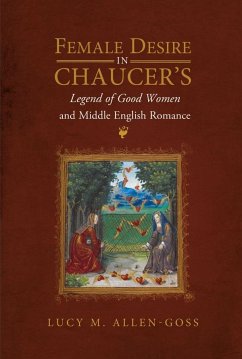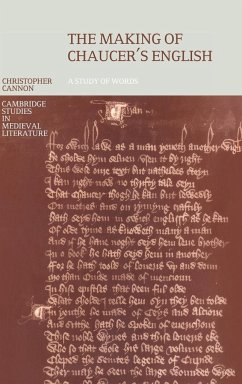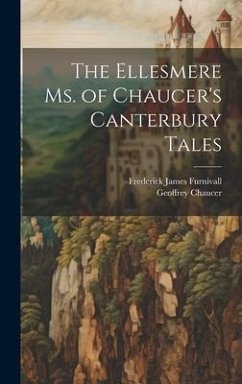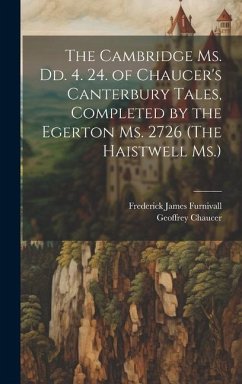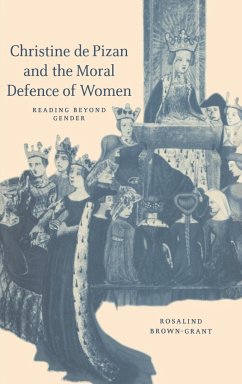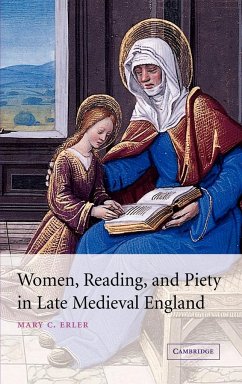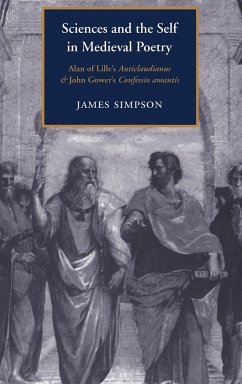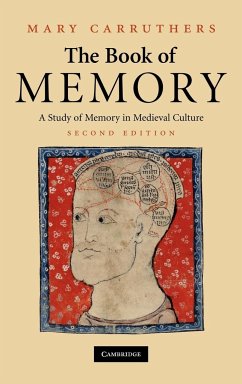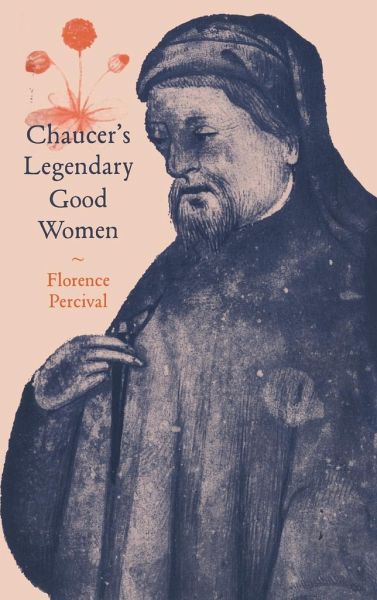
Chaucer's Legendary Good Women

PAYBACK Punkte
59 °P sammeln!
Chaucer's Legend of Good Women is a testament to the disparate views of women prevalent in the Middle Ages. Dr Percival contends that the complex medieval notion of Woman informs the structure of the poem: in the Prologue Chaucer praises conventional ideas of female virtue, while in the Legends he demonstrates a humorous scepticism, apparently influenced by a contemporary antifeminist tradition. The debate Chaucer thus promotes could be relied on to entertain many medieval readers, at the same time that it demonstrates the power of the vernacular translator/poet to handle language wittily and ...
Chaucer's Legend of Good Women is a testament to the disparate views of women prevalent in the Middle Ages. Dr Percival contends that the complex medieval notion of Woman informs the structure of the poem: in the Prologue Chaucer praises conventional ideas of female virtue, while in the Legends he demonstrates a humorous scepticism, apparently influenced by a contemporary antifeminist tradition. The debate Chaucer thus promotes could be relied on to entertain many medieval readers, at the same time that it demonstrates the power of the vernacular translator/poet to handle language wittily and to do just as he pleases with the august texts of the past. This is a comprehensive account of the Legend's interpretative puzzles, which does not ignore the element of political writing, and adds to a close and nuanced reading of the text an examination of literary, historical, and social contexts.
Table of contents:
Introduction; Part I. Chaucer's Good Woman: 1. The good woman: the daisy; 2. Alceste: the good woman of legend; 3. The good woman: a legendary beast? Part II. The God of Love: 4. The God of love; 5. The accusation; 6. The defence: tyrants of Lombardy; 7. The defence: Matere and Entente; Part III. The Palinode: The Legends of a Good Woman: 8. Ariadne: the ladies and the critics; 9. Medea: the ladies and their reputations; 10. Cleopatra: legend of Cupid's saint; 11. Dido: composite woman; 12. Lucrece: too good to be true? 13. Phyllis and inherited male perfidy; Part IV. The Legend as Courtly Game: Epilogue.
This is a comprehensive account of the Legend of Good Women's interpretative puzzles, which does not ignore the element of political writing, and adds to a close and nuanced reading of the text an examination of literary, historical, and social contexts.
A comprehensive account of Chaucer's Legend of Good Women.
Table of contents:
Introduction; Part I. Chaucer's Good Woman: 1. The good woman: the daisy; 2. Alceste: the good woman of legend; 3. The good woman: a legendary beast? Part II. The God of Love: 4. The God of love; 5. The accusation; 6. The defence: tyrants of Lombardy; 7. The defence: Matere and Entente; Part III. The Palinode: The Legends of a Good Woman: 8. Ariadne: the ladies and the critics; 9. Medea: the ladies and their reputations; 10. Cleopatra: legend of Cupid's saint; 11. Dido: composite woman; 12. Lucrece: too good to be true? 13. Phyllis and inherited male perfidy; Part IV. The Legend as Courtly Game: Epilogue.
This is a comprehensive account of the Legend of Good Women's interpretative puzzles, which does not ignore the element of political writing, and adds to a close and nuanced reading of the text an examination of literary, historical, and social contexts.
A comprehensive account of Chaucer's Legend of Good Women.




